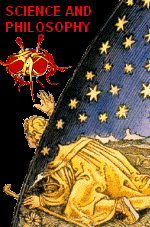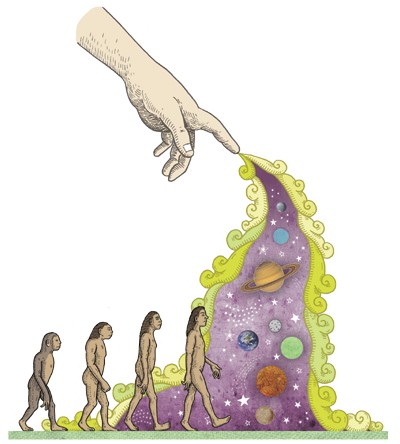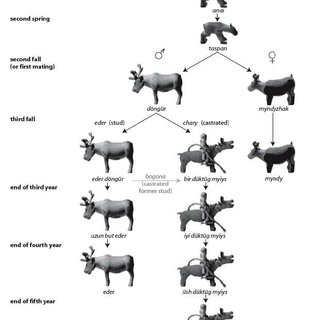 Tue night, I went to Paul Griffiths’ inaugural lecture at Sydney Uni called Reconstructing Human Nature (thanks John Wilkins for letting me know!). The talk was on conceptions of human nature and what it means for something to be “innate”. I won’t summarise it — but I will give some thoughts that sprang forth from it.
Tue night, I went to Paul Griffiths’ inaugural lecture at Sydney Uni called Reconstructing Human Nature (thanks John Wilkins for letting me know!). The talk was on conceptions of human nature and what it means for something to be “innate”. I won’t summarise it — but I will give some thoughts that sprang forth from it.
Folk Biology, Essentialism, Creationism
Our intuition about innateness come from folk biology. Folk biology studies our non-scientific conceptions of biology (those held by children, adults with little/no knowledge of biology etc). A very important concept is that people are essentialist about organisms. That is, they believe that a lion, for instance, has some objective and real intrinsic nature that makes it a lion. So, it’s either a lion or it’s not.
I think this explains why children are creationists and why we find it so hard as adults to get our minds around evolutionary. If species have essences then it’s almost impossible to imagine descent with modification. This also means folk biology is an important tool in combating creationism as well as science education in general. We need to understand how our brains think about living organisms naturally* in order to develop tools for getting us to think correctly.



Innateness in Folk Biology
Dr Griffiths headed a study (currently in print) that appears to show that we believe a feature is innate if it possesses 3 characteristics. The more of these 3 a feature has, the more a person’s likely to think of it as “innate”. Here they are, with examples:
- Fixity: a bird’s plumage colour is hard to change (innate) — a person’s resting heart rate is easy to change (not innate).
- Typicality: having one head is typical for humans (innate) — a bonobo that only has heterosexual sex is rare (not innate).
- Teleology: a frog’s vision has purposes such as helping it catch flies (innate)** — the limp of a particular rhino has no reasonable purpose (not innate).
The problem is that these 3 aren’t really correlated. The most trivial example being that teleology doesn’t imply typicality (there are lots of good adaptations that are rare in a population). Our folk concept innateness is incoherent and not terribly useful. Griffiths outlined some scientifically useful alternatives, but the main point is that our intuitions on what is “natural” often leads us astray.
A Muddled Concept
This confused view of human nature leads to many misunderstandings with real-world consequences. Many hot-button issues rely on making judgements about what innateness means — but often these devolve into people talking at cross purposes each one using a different meaning from one of the 3 above. Here are just some examples of such issues:
- attraction to people of the same sex
- attraction to a specific body type
- attraction to people with a specific behaviour
- monogamy
- murder/genocide
- the ability to torture
- rape, especially when it happens on a mass scale in extreme situations
- intelligence, IQ, reasoning ability
Beware of arguments about the innateness of the above topics: for often those who present them use muddled, vacuous or misleading concepts.
Griffiths argues that the folk concept of innateness is as meaningless as the folk concept of heat, which conflates very different scientific ideas (temperature, quantity of heat, conductivity). I think he’s right, and we should try avoid both.
The difference is that people aren’t being harmed or denied rights because of a confusion about what “heat” is.
*I’m aware of the irony of using such words in this post — yet it’s unavoidable!
**This one works equally well with evolution or creationism





0 Comments